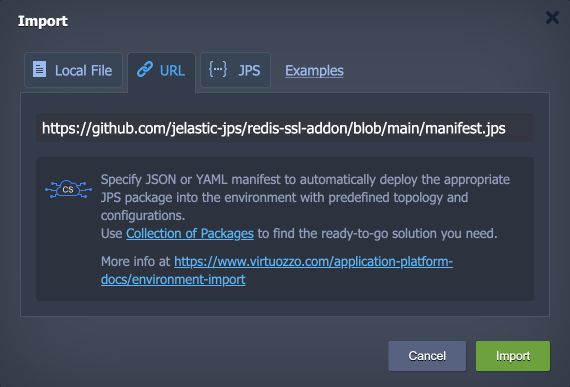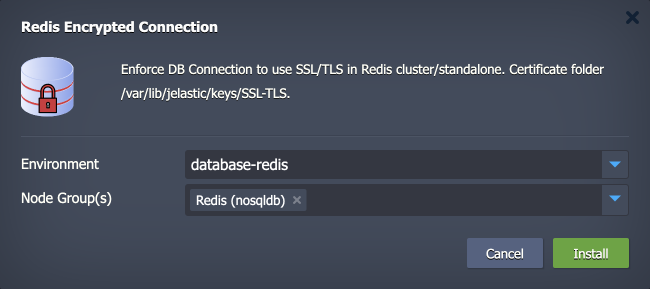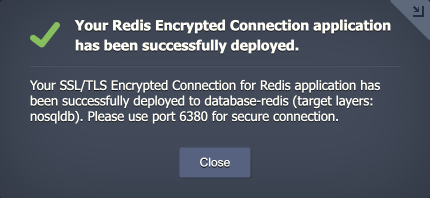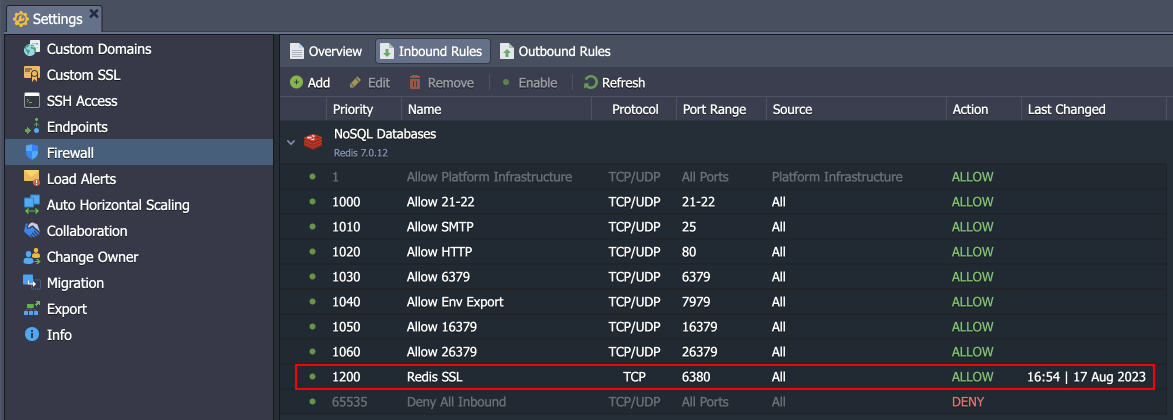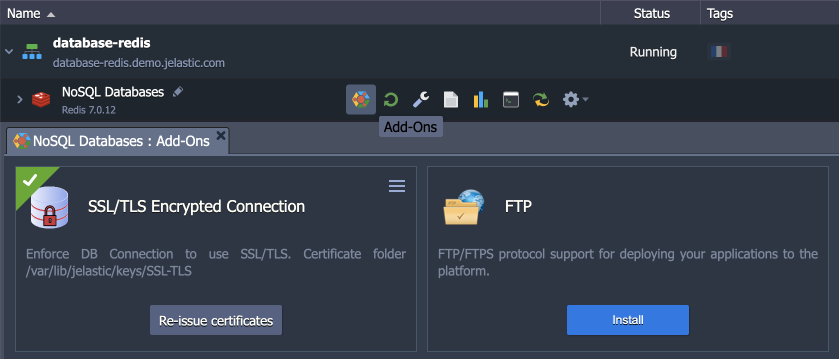The add-on automates the SSL/TLS certificate generation and encryption configuration for both standalone and cluster Redis solutions on the Virtuozzo Application Platform. Get this standard security measure in just a minute, ensuring secure data exchange between server and client.
The add-on can be installed on top of the Redis nodes only.
1. Log into your Virtuozzo Application Platform and import the add-on's manifest from this repository:
https://github.com/jelastic-jps/redis-ssl-addon/blob/main/manifest.jps
Click Import to proceed.
2. Within the opened installation window, select the target Environment and Node Group(s) where the add-on will be installed.
Click Install to continue.
3. In a minute, your environment will be configured.
Note: Port 6380 is used for secure connection by default and is automatically added to the firewall rules during the add-on installation.
You can find generated SSL certificates under the /var/lib/jelastic/keys/SSL-TLS folder.
After the installation, the add-on can be found under the Add-Ons tab for the appropriate layer.
Here you can click the Re-issue certificates button to generate SSL certificates for secure connection anew.
If no longer needed, remove the add-on from the layer by choosing the Uninstall option in the add-on menu in the top-right corner.
For secure connection (we’ll use the redis-cli utility as an example), specify the command with the following options:
Tip: You can store the database password in the dedicated REDISCLI_AUTH variable to avoid exposing it in the command line:
export REDISCLI_AUTH={password}
redis-cli -p 6380 --tls --cacert /var/lib/jelastic/keys/SSL-TLS/client/root.crt {command}
You can execute any preferred {command} or omit it to connect to the database in the interactive mode.
If the server requires authentication using a client-side certificate, you can specify a certificate and a corresponding private key using --cert and --key parameters.
redis-cli -p 6380 --tls --cert /var/lib/jelastic/keys/SSL-TLS/client/client.crt --key /var/lib/jelastic/keys/SSL-TLS/client/client.key --cacert /var/lib/jelastic/keys/SSL-TLS/client/root.crt {command}
For external connection, the client needs to upload the certificate files (client.crt, client.key, root.crt) to their computer/container/VM and use the -h option to specify a remote hostname or an IP address.

